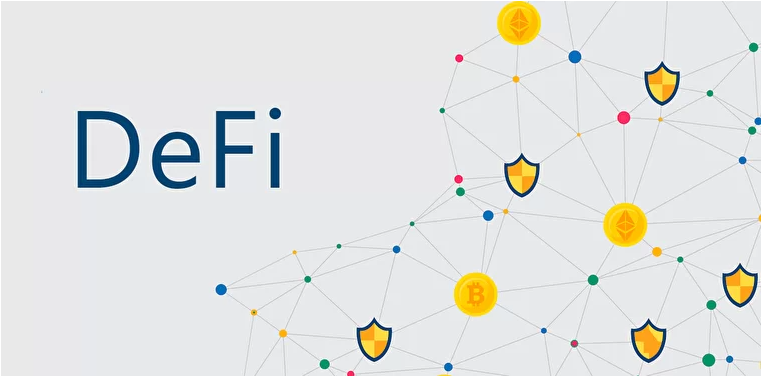What Decentralized Finance (DeFi) is
Decentralized finance (DeFi) is one of the key trends in the cryptocurrency industry. The popularity of DeFi is constantly growing as decentralized finance covers the entire field of financial services and transactions. Let’s talk about the work of DeFi in this article.
Attention! This article is for informational purposes only and does not contain recommendations or calls to action.
The review has been prepared by the CScalp terminal team. You can get CScalp by leaving your e-mail in the form below.
What Decentralized finance (DeFi) is?
Decentralized finance (DeFi) is an ecosystem of applications and services based on blockchain. Most applications are based on Ethereum blockchain. Along with this, more DeFi applications are being created on the BNB Smart Chain (Binance Smart Chain) blockchain.

Generally, DeFi are conventional financial instruments, but are built on the basis of blockchain. Typically, DeFi applications are created using open source smart contracts.
In addition to smart contracts, decentralized finance (DeFi) uses digital asset technologies, decentralized applications (DApps). DeFi technologies make it possible to create irreversible agreements without intermediaries (banks or government bodies).
Some DeFi applications allow you to create stablecoins. These are cryptocurrencies tied to the value of physical currencies (for example, Tether USDT is tied to the US dollar).
Most decentralized finance applications (DeFi) operate on the peer-to-peer (P2P) principle. In such a system, users interact with each other without intermediaries. The smart contract ensures that the terms of the transaction are respected and the users are responsible for their funds.
DeFi’s main applications
DeFi allows for the creation of stablecoins that are tied to theirs as already mentioned, Also there are platforms that release tokenized assets based on DeFi. In fact, these are traditional assets but have blockchain advantages.
In addition, the field of decentralized finance allows the creation of decentralized crypto exchanges (DEX). Such exchanges do not keep user funds or personal data. KYC procedure for trading is not required, which ensures full anonymity of participants. Currently, the most popular DEX exchanges are Uniswap on Ethereum blockchain and PancakeSwap on BNB Smart Chain blockchain.

DeFi Pros and Cons
The main advantage of decentralized finance is inclusiveness and openness. There are no centralized management structures, and smart contracts are responsible for operations. In addition, DeFi has the following advantages:
-Open source code ensures transparency and publicity of transactions;
-DeFi applications and services can be used by any user;
-DeFi Application can be created by anyone;
– new applications can be created by combining other DeFi projects.
Control over the ecosystem is shared among all members of the network. In addition to smart contracts, DeFi services are managed by voting. Transactions are executed quickly and without a chain of intermediaries, which reduces fee costs. However, decentralized finance also has disadvantages related to:
• systemic risks: liquidity and credit risks;
• high volatility: with a sharp drop in the price of the underlying assets blocked in the CDP, there is a mass liquidation of assets, and as a result, the collapse of the system;
• the risk of hacking smart contracts;
• centralization of data flow;
• lack of funds in DeFi loans.
In the field of decentralized finance, the lines of responsibility are blurred. There is no control institution, so no one is responsible for what happens inside the ecosystem. To be precise, the community is responsible itself. The unwillingness of ecosystem participants to participate in the development of the service may adversely affect the functioning of the project.
At the same time, some DeFi projects are faced with the problem of control over development by one team. As a rule, the problem manifests itself at the moment of delegating responsibility from developers to the community.
Conclusion
In the long run, the development of decentralized finance (DeFi) can ensure an open financial system without intermediaries and corruption. Although it is a relatively new segment of the cryptocurrency market, it is fairly well developed. At the same time, the pace of development is constantly increasing.
Join the CScalp Trading Community
Join our official trader's chat. Here you can communicate with other scalpers, find trading soulmates and discuss the market. We also have an exclusive chat for crypto traders!
Don't forget to subscribe to our official CScalp news channel, use trading signals and get to know our bot.
If you have any questions, just contact our platform's support via Telegram at @CScalp_support_bot. We will respond in a matter of seconds.
You can also visit our Discord channel and subscribe to the CScalp TV YouTube channel.
JOIN OUR CHAT
